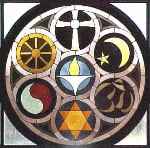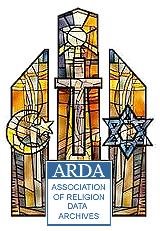 I’m taking an "Economics of Religion" class taught by Professor Larry Iannaccone this semester. It looks like it's going to be a great class!
I’m taking an "Economics of Religion" class taught by Professor Larry Iannaccone this semester. It looks like it's going to be a great class!What exactly is the economics of religion you might ask? Here's one definition:
It is a particular treat to be taking this class from Professor Iannaccone, as he is the founder of this area of study, its top scholar, and is responsible for getting this field legitimized in the academic community.
Economics of religion is a line of scholarship that seeks to explain religious behavior from an economic (or "rational choice") perspective. This is less tautological than it sounds. In contrast to other social-scientific approaches to the study of religion, the economic approach rests upon the fundamental assumptions of economic analysis: maximizing behavior, stable preferences, and market equilibrium.
Economic theories of religious behavior assume that people approach religion in the same way that they approach other objects of choice. They evaluate its costs and benefits and act so as to maximize their utility. Hence they choose what religion (if any) they will accept and how extensively they will participate in it. These choices need not be permanent -- people can and do change their religious identities or levels of religious participation over time. As in any other market, the consumers' freedom to choose constrains the producers of religion. Ultimately, it determines the content of religious commodities and the structure of the institutions that provide them. These effects are felt most strongly where religion is relatively unregulated and, as a consequence, competition among religious firms is pronounced.
We’re currently scheduled to go to an Association for the Study of Religion, Economics, and Culture (ASREC) conference in Portland, Oregon in October. (A good friend of mine from Orlando is now a college professor out there and it will be great to see him again.) I attended the ASREC conference in Rochester, New York last year and was very impressed by the experience.
 One of our first assignments has been to manipulate data from The Association of Religious Data Archives (ARDA). This is an extensive on-line database that offers free access to their data for anyone interested in delving into research on religion. ARDA’s website is very easy to use and includes learning modules to help get you started. Whether you’re engaging in academic research or a layman interested in finding out more about how religion impact society, I’d highly encourage you to check it out. It includes data from many surveys including break-downs of religious affiliation by geographical area, political and social beliefs based on religious affiliation and church attendance, etc. (Currently, most of the data is for the US, but ARDA is working to expand this worldwide.)
One of our first assignments has been to manipulate data from The Association of Religious Data Archives (ARDA). This is an extensive on-line database that offers free access to their data for anyone interested in delving into research on religion. ARDA’s website is very easy to use and includes learning modules to help get you started. Whether you’re engaging in academic research or a layman interested in finding out more about how religion impact society, I’d highly encourage you to check it out. It includes data from many surveys including break-downs of religious affiliation by geographical area, political and social beliefs based on religious affiliation and church attendance, etc. (Currently, most of the data is for the US, but ARDA is working to expand this worldwide.)Professor Iannaccone’s work is one of several things that originally drew me to George Mason. I had him for my math econ class last year and it’s great to start studying under him in his area of specialty.
GMU will offer a PhD emphasis and field exam in the economics of religion starting this year. I am currently on track if I decide to make this one of my concentrations. (Currently, I thinking I will choose this and Law and Economics.)
See my previous post related to economics and religion here.
Further Links:
- The Center for the Economic Study of Religion (CESR) at GMU.
- Business Week article on Professor Iannaccone.
- Economics of religion publications (including much of Dr. Iannaccone's articles).
- Meet Dr. Iannaccone's better half.
1 comment:
I don't know if you still check this blog or not. I'm looking for a good data source that can give me stats on religiosity around the world.
I know Iannacone has argued against "the secularization hypothesis". Maybe you know where I can source some numbers that inform the argument.
Post a Comment